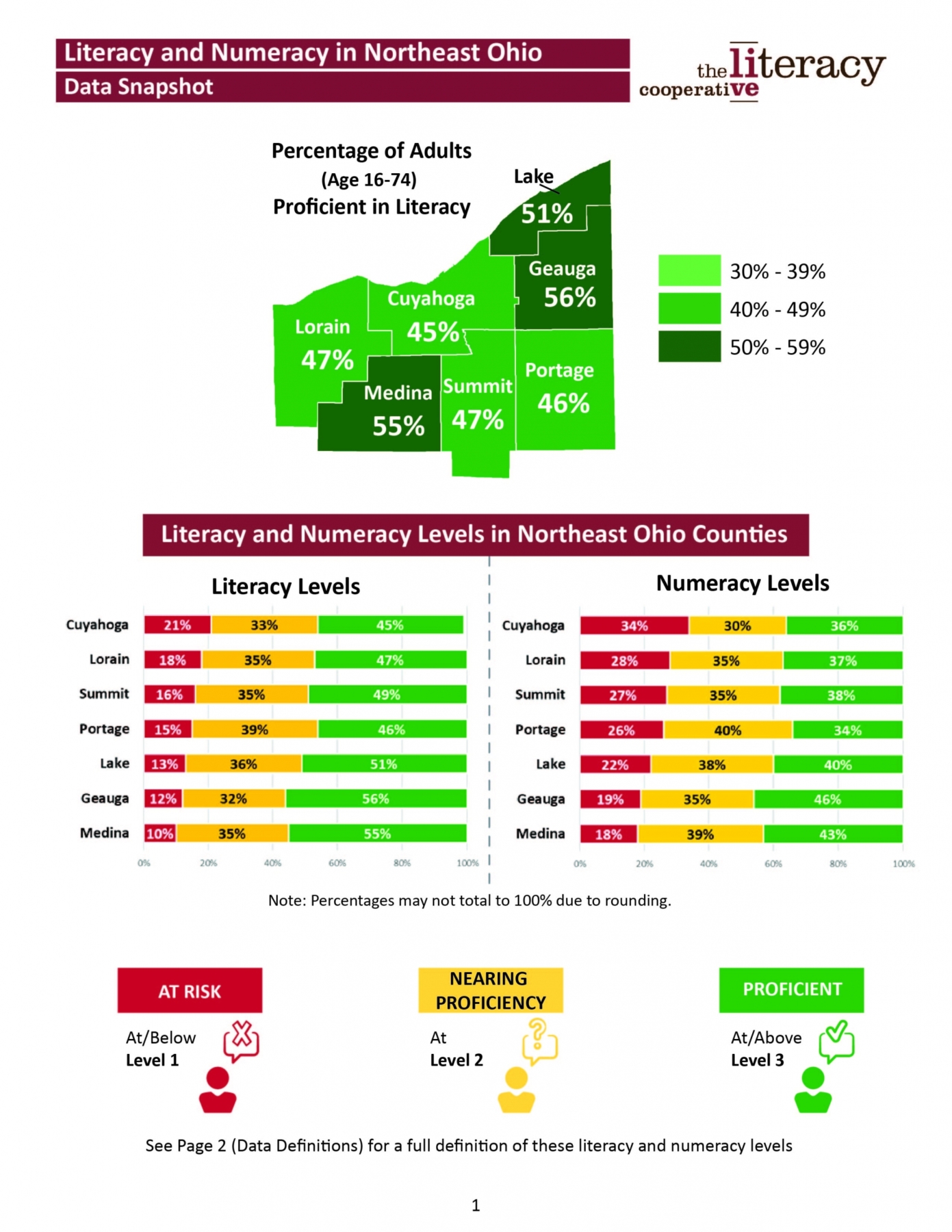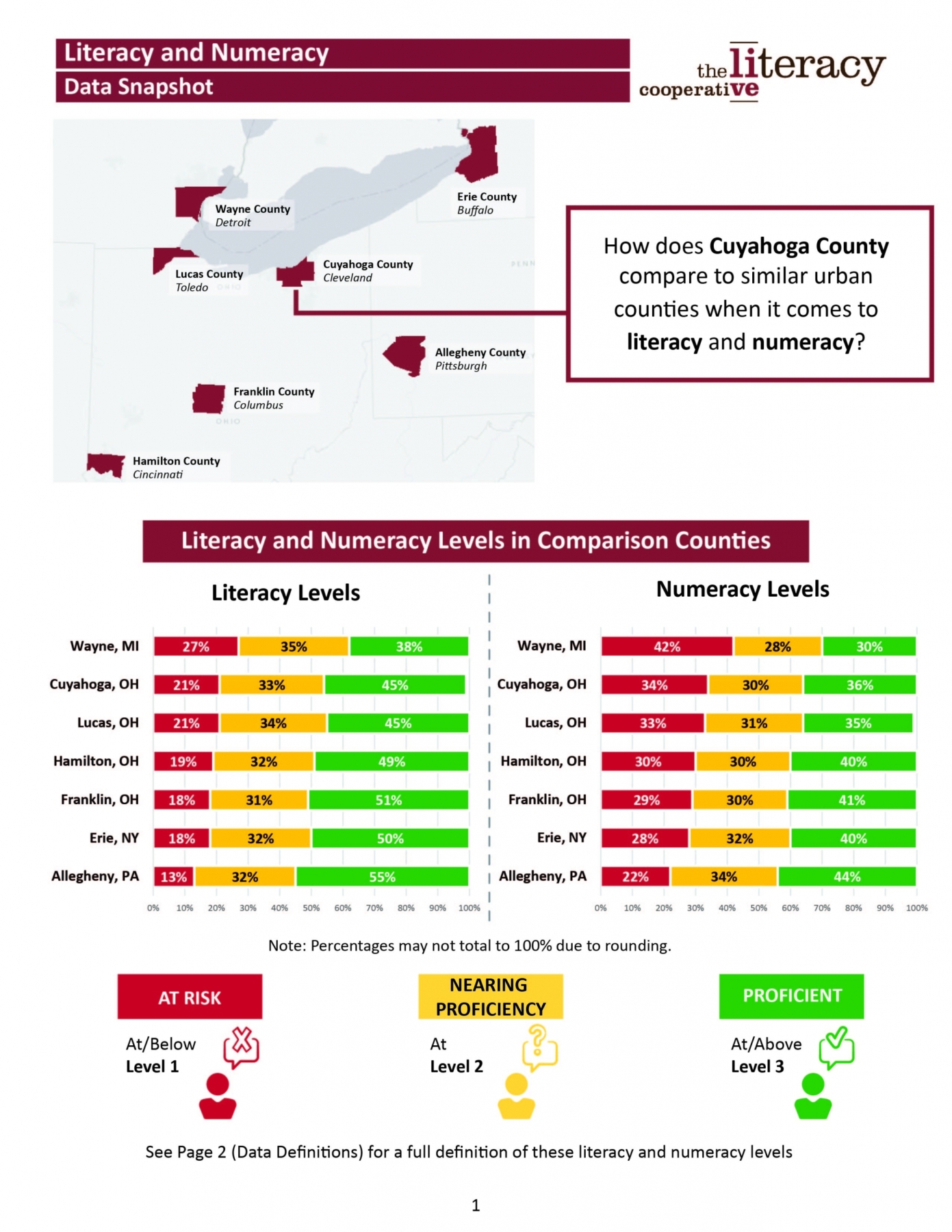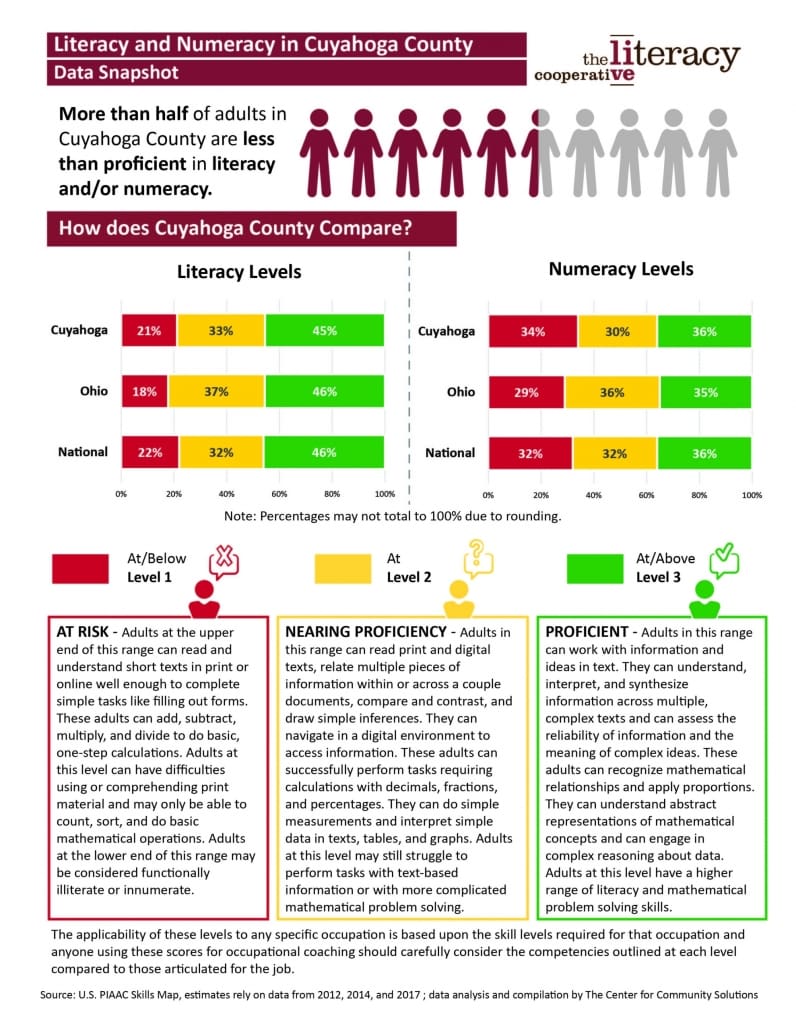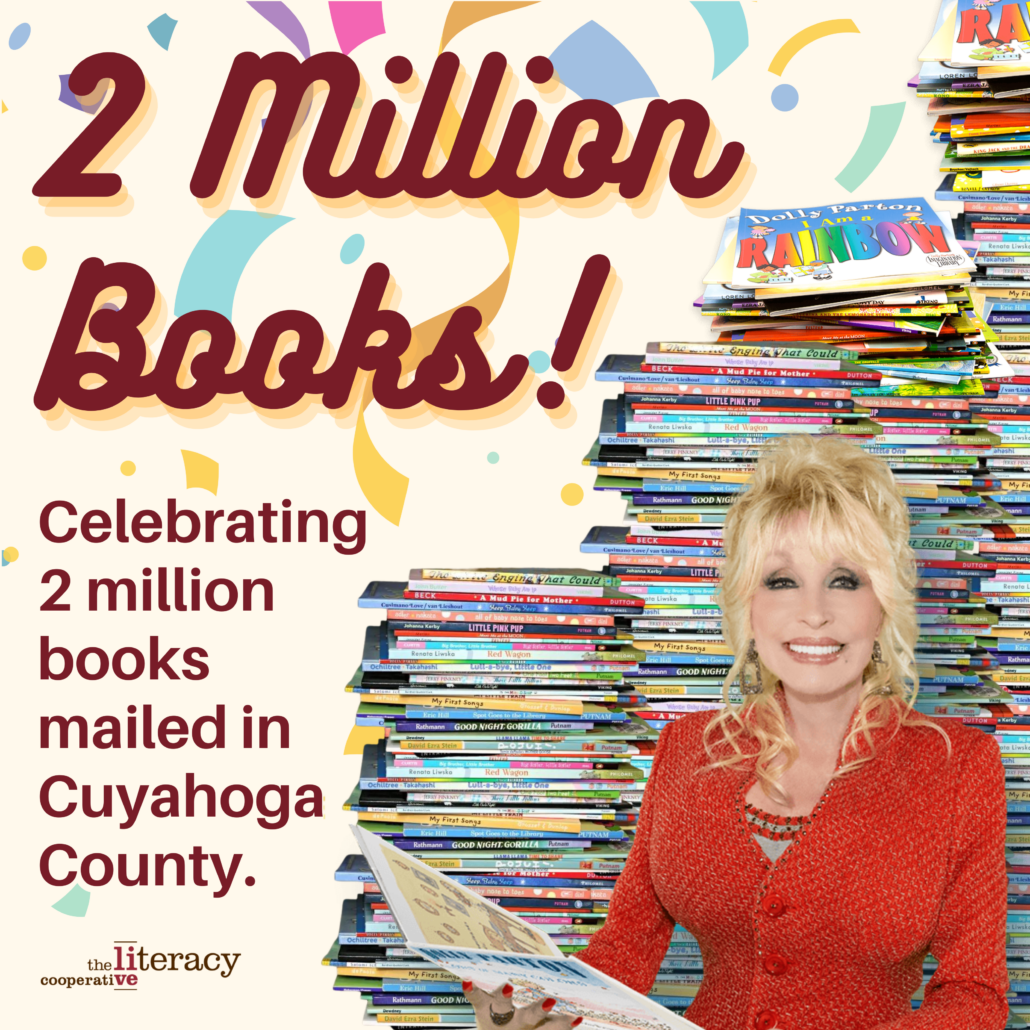National Adult Education and Family Literacy Week: 2020
We are coming to the end of National Adult Education and Family Literacy Week! The whole week is devoted to spreading awareness about adult education opportunities and resources for families to help them learn together as a whole. The Literacy Cooperative invites you to join us to spread awareness about the great opportunities available to adults and families in Cuyahoga County!
Our goal is to create enough momentum around #AEFLWeek, #AdultEd, and our own #AdultsLearnCLE and #FamiliesLearnCLE hashtags that adult and whole family education will become a hot topic all over Northeast Ohio! To get involved, click here.
Unfortunately in this week of recognizing the importance of adult education and family literacy we learned of a report showing that Cleveland was ranked the poorest city in the United States in 2019, https://www.communitysolutions.com/last-year-income-increased-poverty-decreased-2020/. We have been in the top 10 with other large cities like Detroit and Cincinnati. To make matters seem worse, another report ranks Cleveland as the worst connected large city for internet for the same year! https://www.cleveland.com/news/2020/09/cleveland-ranks-as-worst-connected-large-city-for-internet-in-2019.html
It should come as no surprise that the results of these less than prestigious rankings hit our community hard. One important area affected is literacy. Poverty and low literacy often go together and make it difficult for families to overcome. The National Center for Education Statistics (NCES) recently released the PIAAC Skills Map: State and County Indicators of Adult Literacy and Numeracy. The Program for the International Assessment of Adult Competencies (PIAAC) is a cyclical, large-scale study that was developed under the auspices of the Organization for Economic Cooperation and Development (OECD). The assessment focuses on workplace skills needed for successful participation in 21st-century society and the global economy. The following infographics give a brief overview of how PIAAC reports the levels of literacy and numeracy. Each one compares the levels of literacy in Cuyahoga County to our state, nation, NEO counties as well as comparable counties in surrounding states. It is important to note that Cuyahoga County is equal to the state and nation at the highest levels of literacy and numeracy. It is also important to note that we have an opportunity for improvement to engage more adults in advancing their literacy levels to be at the proficient level. This is evident when you compare our county to the others below.
Unless we address literacy for both adults and children, we will continue to see a cycle of low literacy. The Literacy Cycle in Cuyahoga County shows how literacy levels affect important stages in education.
A literacy crisis will persist for generations unless progress is accelerated in preparing young children for kindergarten and helping more adult residents secure at least a high school education. Put simply, children unprepared for kindergarten are less likely to read proficiently by the end of third grade – a predictor of later success in school. And adults without a high school diploma lack the basic literacy and other skills required to access in-demand jobs that offer paths to prosperity.
The Literacy Cooperative and its partners are working with programs such as Dolly Parton’s Imagination Library, a monthly book-gifting initiative that mails books to young children from birth to age five and Aspire for adults, the state of Ohio’s adult education programs. Efforts such as contextualized curriculum that blend academics and job-related skills are becoming increasingly effective.
Most promising of all are new two-generational (2Gen) projects and programs, involving both children and adults in a family, that are being developed by a 2Gen committee, led by The Literacy Cooperative, of more than 20 educational and human service agencies. Most significantly, the committee has issued 2Gen Cuyahoga: A Community Call to Action to Address Our Economic and Social Gaps on how this collaboration will work to improve social inequities on a whole family basis.
Together, efforts such as these will continue to confront low literacy, open new economic opportunities for Cuyahoga County, and lead to a bright future.




